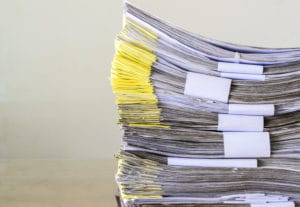This legal document asks the court to order the state to provide evidence to the defendant.
In a criminal case, defendants are entitled to receive certain documents, recordings, photographs and other evidence in the possession of the prosecution and law enforcement. Typically, this occurs through what is known as the discovery process. In discovery, the prosecution turns over evidence to the defense. In some cases, the prosecution may also request discovery from the defense.
In a criminal case, the prosecution has an obligation to provide what is known as “Brady materials” to the defendant. As an experienced criminal defense lawyer Riverside, CA can explain, Brady materials include any evidence that is material to the guilt, innocence or punishment of the defendant. If the prosecutor fails to turn over any of this evidence, it could be grounds to have the case overturned.
In some situations, a skilled criminal defense lawyer Riverside, CA may determine that the prosecution has not turned over all evidence in your case — or that there may be evidence in the prosecution’s possession that could be helpful to your defense. In these situations, if the prosecution will not voluntarily provide you with the requested information, your criminal defense lawyer Riverside, CA may file what is known as a motion to compel.
A motion to compel is a formal request to the judge in a criminal case to intervene in the pre-trial discovery process and order the government to hand over evidence that it intends to use at trial. In California, discovery is governed by Penal Code Sections 1054 to 1054.10. Under Penal Code Section 1054(e), the prosecutor must turn over the following information to the defendant in a criminal trial:
- The names and addresses of persons the prosecutor intends to call as witnesses at trial.
- Statements of all defendants.
- All relevant real evidence seized or obtained as a part of the investigation of the offenses charged.
- The existence of a felony conviction of any material witness whose credibility is likely to be critical to the outcome of the trial.
- Any exculpatory evidence.
- Relevant written or recorded statements of witnesses or reports of the statements of witnesses whom the prosecutor intends to call at the trial, including any reports or statements or experts made in conjunction with the case, including the results of physical or mental examinations, scientific test, experiments, or comparisons which the prosecutor intends to offer in evidence at the trial.
If the prosecutor fails to do so, then your may file a motion to compel.
For example, consider a situation where you have been accused of sexually assaulting a minor — a friend’s daughter. Yet you know that this little girl often spends unsupervised time with an uncle, who has been accused to sexual abuse of a minor in the past. In this situation, the uncle may be a viable “other suspect.” A seasoned criminal defense lawyer Riverside, CA will likely file a motion to compel discovery to obtain the arrest records and other information regarding the uncle. Because it is exculpatory evidence — that is, it is favorable evidence that tends to show your innocence — a court may rule that you are entitled to it under the California Penal Code.
A motion to compel is a valuable tool that can be used during the pretrial stage to build your defense. If you have been charged with a crime, the Chambers Law Firm can help using a number of strategies, including the filing of timely motions. Contact us today at 714-760-4088 or dchambers@clfca.com to schedule a free initial consultation with a criminal defense lawyer Riverside, CA.





